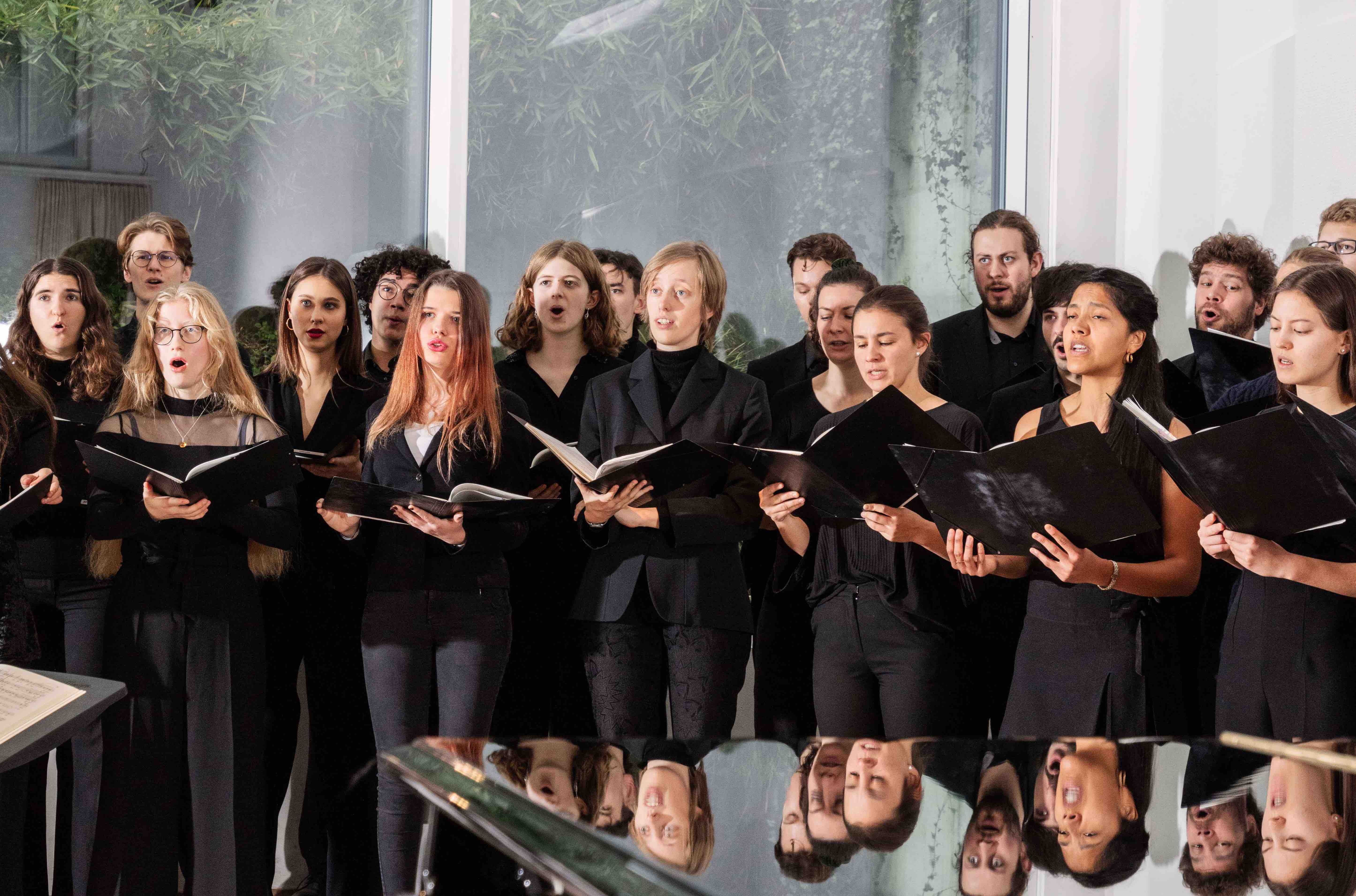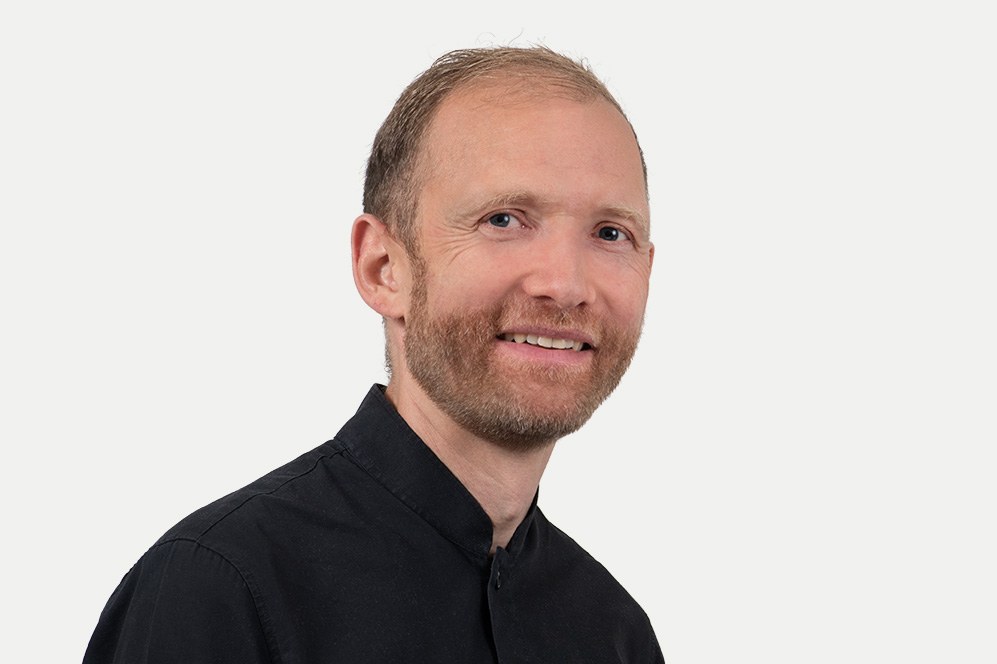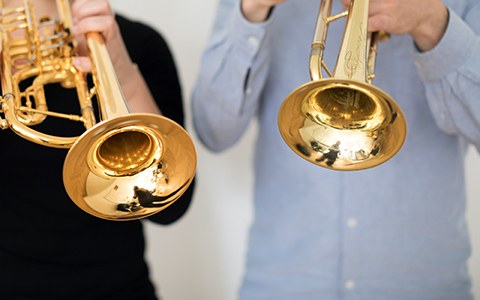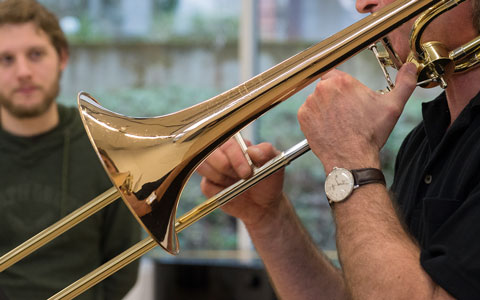MA Music Pedagogy | instrument / voice | Choral Conducting
Hochschule für Musik Basel
Thinking of choosing a specialisation or Music Pedagogy as a second master’s degree? Why not both? Students who have already completed a master’s degree in Performance, instrument/voice, have the opportunity to combine their artistic training in Choral Conducting with their own instrument or singing as part of an MA in Music Pedagogy. This dual profile expands your professional opportunities considerably: you develop the leadership expertise of singing ensembles and teaching skills.

- The combined master’s degree – Choral Conducting and Music Pedagogy requires a degree in MA Performance, instrument/voice
- Development/expansion of a broad repertoire taking into account historical performance practice and critical analysis of sources
- Specialisation in conducting, voice and instrument skills
- Development of an expressive conducting language with practical relevance to various choirs and ensembles
- In parallel, practical teaching qualification for your own instrument; graduate with an MA Music Pedagogy instrumental/voice required for employment at music schools
Steckbrief
Zukunftsaussichten
Learning outcomes
The FHNW Master of Arts in Music Pedagogy with an Instrumental/Vocal Major focusses on nurturing the students’ artistic identity and providing them with the skills needed to share their musical expertise with different audiences. Students learn to engage with music at a deeper and more complex level and encouraged to develop their own unique ‘voice’. They also acquire the pedagogical-didactic skills needed to provide professional jazz tuition at all levels.
The programme pursues two objectives:
Professional performer
Students develop the basics necessary to perform in public and to independently plan and deliver performances to a professional standard in the major Choral Conducting:
The core competencies acquired on the instrument and in ensemble work in the vocal or instrumental performance Master's programme form the basis for building up a conducting repertoire and leadership competence.
This study programme includes the following content:
- Evaluating and honing one’s own conducting practice and methods
- Development of an individual and expressive conducting idiom based on the technical knowledge and skills acquired to date
- Expanding one’s conducting repertoire in preparation for a future career (repertoire for equal or mixed voices; a cappella and instrument repertoire; sacred and secular works; works of varying degrees of difficulty)
- Practical work with university choirs, the study ensemble and an external orchestra
- Extensive exposure to and examination of historical performance practice, relevant source material and academic literature, writing a term paper
- Conducting a concert of one’s own devising (Master’s qualification)
- Pedagogical training for one’s own instrument or voice, which includes theoretical content (psychological and pedagogical basics) as well as specific didactics and various internships and practical seminars and workshops
Teaching music
In addition to the professional training in Choral Conducting, the practice-oriented, concentrated pedagogical training enables the students to teach the instrument or voice studied in the first master's programme professionally in individual and group lessons at musical educational institutions like music schools, grammar/upper level schools or independently at all levels.
Career prospects
The Master's degree in Music Pedagogy instrument/voice (second artistic Major Choral Conducting) allows students to acquire a dual profile:
Graduates of this degree programme are qualified to lead choirs and other vocal ensembles, whether amateur, semi-professional or professional, and different line-ups.
Furthermore, graduates will acquire a Master's degree in instrumental and vocal pedagogy for their own instrument or voice and will then be qualified to teach this subject in music education institutions as well as independently.
Nearly all music schools in Switzerland now require prospective teaching staff to have a Master of Arts in Music Pedagogy (or an equivalent qualification).
Target audience
This programme is aimed at students who have completed a Master's degree in vocal or instrumental performance and who wish to combine a specialisation in choral conducting with a Master's degree in pedagogy for their own instrument or voice. The second artistic major replaces the artistic major instrumental/vocal.
Aufbau und Inhalte
The BA and MA degree programs at the Basel Academy of Music are based on modules.
The legally binding structure provides an initial guide to the content and weighting of the subjects on the degree programme.
The detailed content and modalities of the individual subjects can be found in the module descriptions.
The study regulations come into force together with the study and examination regulations of the Basel Academy of Music FHNW and form the legal framework.
Vertiefungen
International
Leitung und Dozierende

Prof. Beat Hofstetter
Studiengangsleiter BA und MA Schulmusik I und II | MA Spezialisierte Performance Chorleitung & Blasorchesterdirektion

Martin Wettges
Dozent für Chorleitung

Musikpädagogische Fächer
Dozierende der pädagogischen Fächer

Dozierende Klassik
Unsere international renommierten Dozierenden auf einen Blick.
Voraussetzungen, Zulassung, Eignungsabklärung
Admission criteria
In order to enter the FHNW Master of Arts in Music Pedagogy programme with a Choral Conducting Major, applicants must be awarded a Master in Music Performance or equivalent as well as they must have passed the entrance exam and were offered a free place at the Academy (limited places).
Applicants who have submitted all the necessary registration documents in time and have passed the first round of the entrance exam will be invited to a live audition.
For further information on the admission criteria, please see the Studienreglement of the Master of Arts FHNW in Music Pedagogy.
Required Skills
- Experience of reading choral scores of different musical styles and eras
- Basic conducting skills
- Ear training qualification (minimum mark of 4.8, or Grade C)
- Excellent piano proficiency and basic score-playing/reading skills
- Basic knowledge of early musical notation/clefs and transposing vocals
- Choral and/or solo singing experience
- Pedagogical abilities, leadership qualities
Language Skills
We expect students to have very good German language skills at the beginning of the studies. Students who are not German native speakers must present at least a B1 German language certificate according to the Common European Framework of Reference for Languages (CEFR) at the beginning of the studies.
This certificate must be complete, i.e. all modules (reading, listening, writing, speaking) have been tested separately and passed at least at level B1 overall. Only certificates that have been certified with the ALTE-Q-Mark seal of approval (e.g. the B1 certificate of the Goethe-Institut or the telc certificate) are accepted. The required certificate B1 must be submitted with the confirmation of admission but not later than 31st May. Exceptions will be decided upon by the head of degree programme.
Organisatorisches
More Study variations
Students are able to graduate the pedagogic education on their instrument/voice and chose the following alternative artistic Major
-> Falls möglich, Elemente anteasern, sonst Liste einfügen (wichtig: per Schlagwort)
Verlinkung für Annekatrin: alle Zweitmaster
Projects / Ensembles
At Hochschule für Musik Basel, students have the opportunity to participate in various project and ensemble programmes.
To the overview of the recurring offers.
Quicklinks
- Welcome: A brief overview
- Studying in Switzerland
- Tuition fees & Financing
- Scholarship
- Module descriptions
